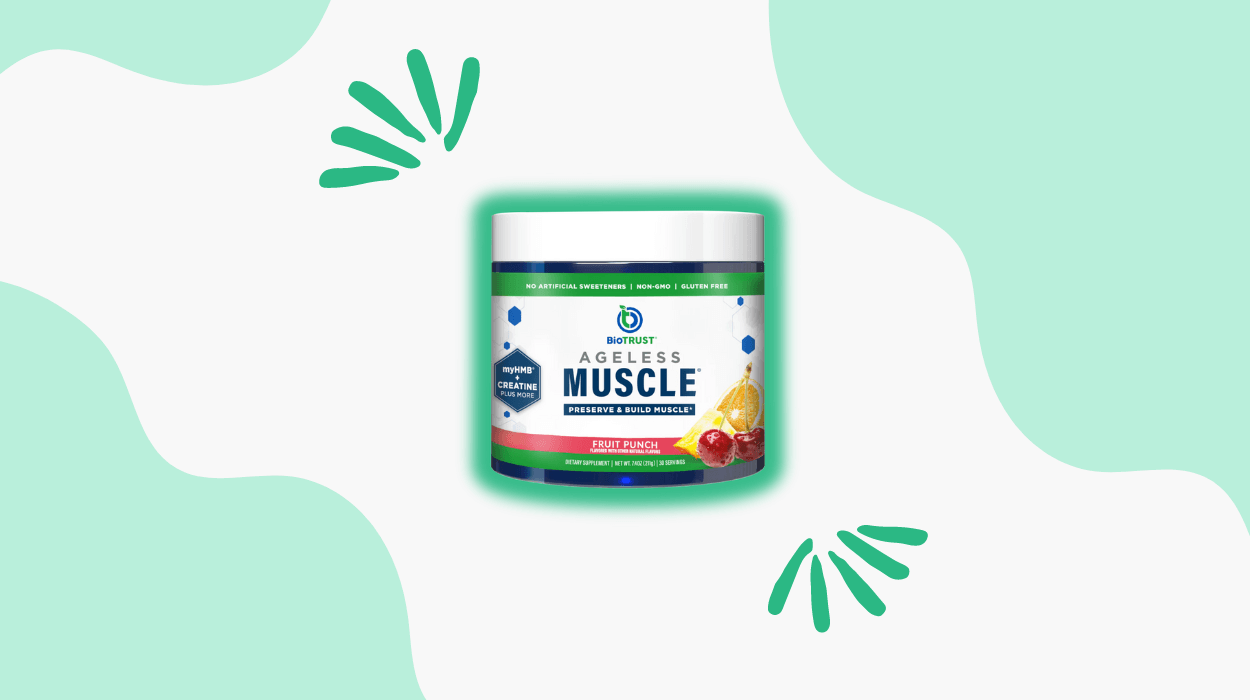

You’ve probably felt your stomach puff up after a big meal, a condition called bloating. It happens when you eat too much or consume foods that create gas or if you have conditions like IBS or constipation.
Bloating could bring discomfort in your gut, like stomach pain, heartburn, nausea, vomiting, or diarrhea. These symptoms could signal serious health issues and require a doctor’s attention.
There are ways to reduce bloating, like exercising regularly, changing your diet, getting stomach massages, or trying other methods.
I’ll share some of the best tips to ease bloating and discuss how it might affect digestion and belly fat.
Bloating is characterized by increased pressure and a feeling of fullness in the abdomen due to trapped gas. Bloating may appear like a protruding belly, which might feel tender and painful to touch.
You may feel bloated after overeating or consuming gaseous foods. It might also result from alterations in the gut microbiome, increased gut sensitivity from emotional changes, or due to digestive conditions (IBS, IBD, or constipation).
Bloating can be a natural body reaction to eating large meals. Your brain may signal the diaphragm and abdominal walls to relax, creating more space to accommodate food. This mechanism is termed as bloating and may also induce delayed stomach emptying.
The discomfort levels from bloating may vary from temporary to chronic, depending on the underlying cause.

Mindful eating is a dietary practice that involves slowing down and paying close attention to your eating habits to promote digestive wellness. Practicing mindful eating might reduce the chances of bloating caused by swallowing excess air during meals.
Chewing food thoroughly before swallowing aids digestion and minimizes the risk of feeling bloated. Mindful eating may also help prevent overeating, which may induce weight gain and bloating.
Sitting down while consuming meals, eating without distractions, and staying hydrated are some mindful eating hacks to optimize digestion and minimize bloating.
To further illustrate the importance of mindful eating, consider the following table:
| Benefits of Mindful Eating | How It Helps Prevent Bloating |
|---|---|
| Prevents overeating | Reduces the intake of excess calories, preventing bloating. |
| Enhances digestion | Chewing food thoroughly aids in proper digestion, reducing bloating. |
| Increases awareness | It helps identify triggers for bloating and promotes healthier eating habits. |
| Reduces stress eating | Minimizes the consumption of unhealthy foods that might lead to bloating. |
| Promotes enjoyment of food | Encourages savoring flavors and textures, leading to a more satisfying meal experience. |
Regular physical activity may encourage a healthy digestive function. Engaging in various forms of exercise could aid in reducing bloating and improving overall abdominal aesthetics.
Walking, cycling, jogging, or swimming may boost metabolism and enhance overall digestion. These cardiovascular exercises may support a healthy digestive system and reduce bloating.
Integrating weightlifting or resistance training into your routine could help build muscle mass and increase metabolism. Targeting core muscles through exercises like crunches and planks may specifically aid in reducing bloating and improving posture.
Pilates focuses on core strength, flexibility, and overall body awareness. These exercises may help tone the abdominal muscles, leading to a reduction in abdominal circumference and a firmer waistline.
Consistent exercise routines, including cardio, strength training, and flexibility exercises, may help reduce bloating and improve body composition.
Gases introduced into the gut through the ingestion of air and the fermentation of food in the large intestine may contribute to increased gas production. These gases could lead to bloating and digestive discomfort.
Here are some common factors that might contribute to bloating:
Consuming herbal teas may soothe abdominal discomfort and support digestive wellness.
Carbohydrates that are not well absorbed may ferment in the gut, inducing gas production and bloating. Reducing carbohydrate intake might help manage bloating and abdominal discomfort caused by certain carbohydrates.
Avoid foods high in fermentable oligosaccharides like wheat, onions, and garlic. You should also avoid consuming carbs high in disaccharides, like dairy products. Avoiding these carbohydrates might reduce the chances of bloating and gas.
You should also avoid certain vegetables like broccoli, cauliflower, and cabbage. These vegetables have high fiber content and the potential to ferment in the gut, possibly contributing to bloating and gas.
Reduce the intake of sugars like fructose in fruits, honey, and high-fructose corn syrup, which might contribute to bloating and gas production.
Opt for low-carb alternatives like leafy greens, lean proteins, and healthy fats to help reduce overall carbohydrate intake and minimize bloating episodes.
Consuming foods with excessive salt may lead to water retention in the gut, contributing to feelings of bloating. A high salt intake may also delay digestive processes, potentially leading to increased gas production and bloating.
Salty foods like chips and fried items contain fats and refined carbs, which take longer to digest and exacerbate bloating symptoms. Therefore, reducing salt intake and opting for healthier, low-sodium alternatives could help minimize bloating.
To illustrate salt intake’s effects on bloating further, consider the following table:
| Effects of Salt Intake on Bloating |
|---|
| Large portions stretch the stomach, leading to gas accumulation. |
| Excess salt intake may cause water retention in the gut, contributing to bloating. |
| Hard-to-digest carbs in the gut increase fermentation and gas production. |
| Refined carbs and fats take longer to digest, potentially leading to bloating. |
When feeling bloated, you may consider the following approaches to minimize sodium’s impact on gut health:
Sparkling water, beer, and soda contain carbon dioxide that may create air bubbles in the stomach, leading to bloating, burping, or discomfort if not released through burping. This bloating might be both physically uncomfortable and aesthetically displeasing.
Diet sodas containing sugar alcohols may trigger irritable bowel syndrome (IBS) symptoms and digestive discomfort, with the body’s response varying based on the amount consumed.
Limiting your soda intake may reduce the risk of bloating episodes. Opting for non-carbonated beverages like water, herbal teas, or natural fruit juices helps enhance hydration without the added gas-inducing effects of carbonation.
Probiotics are beneficial gut microorganisms that could improve digestive health and reduce bloating. They are available as supplements but may naturally occur in foods like yogurt, kombucha, miso, and sauerkraut.
Select a probiotic strain that targets bloating and digestive issues, such as Lactobacillus or Bifidobacterium. Probiotics may increase the types and count of healthy gut bacteria, alleviating bloating and other symptoms similar to IBS.
However, consult a doctor before starting any probiotic regimen. They could provide guidance on the appropriate dosage, duration, and specific strains that may benefit your individual needs.
Keep track of your symptoms before and after starting probiotic supplements. Monitoring changes in bloating, gas, and overall digestive comfort may help assess the effectiveness of the probiotics.
Sitting or standing upright while eating may aid in the smooth navigation of food through the digestive tract, reducing the likelihood of gas and bloating. Timing your meals appropriately may also support efficient digestion.
You should avoid late-night or bedtime meals as the body’s digestive processes decrease during sleep, potentially leading to discomfort and bloating. Choosing smaller portions for late-night meals might help minimize these effects.
Focus on a nutritious diet rich in lean proteins, fiber, and complex carbohydrates to support digestive health. These nutrients improve digestion and could help prevent bloating.
Avoiding carbonated beverages and processed foods high in refined flour, sodium, and trans fats may support digestive well-being. Opting for whole, unprocessed foods may provide the necessary nutrients without contributing to bloating.
Processed foods are typically high in refined flour, excessive sodium, unhealthy trans fats, and added sugars. These ingredients may contribute to weight gain, digestive discomfort, and high blood pressure.
Additives in processed foods may disrupt the balance of good bacteria in the gut, inducing inflammation and digestive issues like bloating. Excessive salt intake from processed foods could also contribute to water retention and bloating.
Swapping out refined grains with whole grains, eating home-cooked meals, and consuming fresh foods over store-bought ones may help limit your processed foods consumption.
If you experience severe or persistent bloating, it is advisable to seek medical attention promptly to minimize the possibility of adverse health complications.
Here are some signs that signal the need for medical intervention:
These signs should not be ignored, as they could point to underlying health conditions that require medical attention.
If bloating is associated with signs like nausea, vomiting, diarrhea, unexplained weight loss, or blood in stools, it is crucial to seek prompt medical advice.
A balanced gut microbiome aids digestion, reduces bloating, and supports weight management. Prioritizing gut health through a wholesome diet and probiotic-rich foods may enhance digestive function and overall well-being.
Maintaining a healthy fiber intake, practicing portion control, and consuming high-protein and complex-carb meals may help minimize bloating and associated discomfort.
Engaging in strength training and aerobic exercise, reducing calorie intake, staying hydrated, and getting enough sleep are some measures to reduce a bloated belly.
Tyler Read earned an undergraduate academic degree from Sonoma State University, California and is a certified personal trainer (CPT) with NASM (National Academy of Sports Medicine). With over 16 years of experience, Tyler has trained clients both online and in-person.
He is passionate about helping others turn their love for fitness into a career. Tyler has worked with many local and commercial gyms before establishing his successful private personal training business, which he continues to operate.
